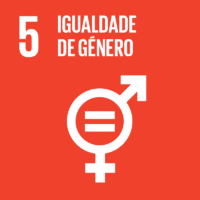Ciência_Iscte
Publicações
Descrição Detalhada da Publicação
Determinants of job quality evidence for European country groups
Título Revista
Acta Oeconomica
Ano (publicação definitiva)
2015
Língua
Inglês
País
Hungria
Mais Informação
Web of Science®
Scopus
Google Scholar
Abstract/Resumo
Based on a micro-level approach and using data from the European Working Conditions Survey, covering 27 countries, we analyze the determinant factors of job quality. To that end, through cluster analysis applied to 11 dimensional indices, we form three more homogeneous country groups and identify, by estimating twice-censored Tobit models, the main determinant factors affecting the individual level of job quality in each group. We verify the relevance of variables related to worker characteristics, firm characteristics, and the country in which the individual works. Among worker characteristics, education and employment status are the factors with the highest impact on job quality, while the economic sector is the most important firm characteristic. The results suggest the existence of important differences among groups regarding the magnitude of the impact of some factors. The highest dissimilarities are found between the group with better jobs (Nordic countries plus Belgium) and the group with lower quality jobs (Central and Eastern Europe countries plus Portugal and Greece). Variables related with age, education, dimension of the firm, and economic sector are those in which more heterogeneity is found among the groups.
Agradecimentos/Acknowledgements
--
Palavras-chave
Job quality,Europe,Determinant factors,Twice-censored Tobit model,Cluster analysis
Classificação Fields of Science and Technology
- Economia e Gestão - Ciências Sociais
Contribuições para os Objetivos do Desenvolvimento Sustentável das Nações Unidas
Com o objetivo de aumentar a investigação direcionada para o cumprimento dos Objetivos do Desenvolvimento Sustentável para 2030 das Nações Unidas, é disponibilizada no Ciência_Iscte a possibilidade de associação, quando aplicável, dos artigos científicos aos Objetivos do Desenvolvimento Sustentável. Estes são os Objetivos do Desenvolvimento Sustentável identificados pelo(s) autor(es) para esta publicação. Para uma informação detalhada dos Objetivos do Desenvolvimento Sustentável, clique aqui.

 English
English



